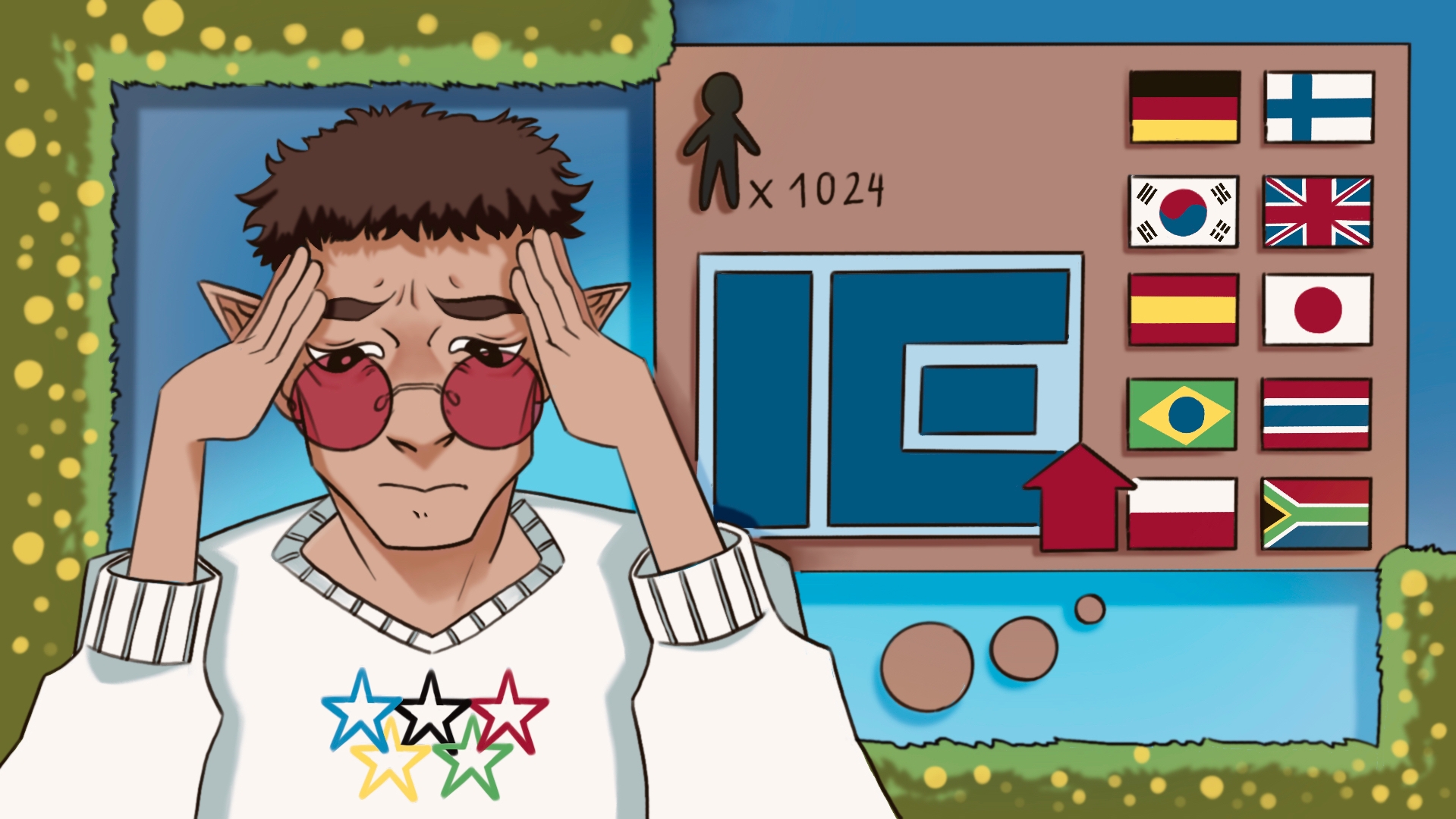
©Julia Nurit Schönnagel, MATH+
Authors: Silas Rathke, Yamaan Attwa
Challenge
This year, the Olympic Arctic Games are held at the North Pole, attracting 1,024 athletes from across the Frozen North to compete in various sports.
Otto, the event’s accommodation organizer, is tasked with housing the athletes. Therefore, he needs to follow one strict rule of the Arctic Olympic Committee: If two (distinct) athletes do not share a common language, they cannot be accommodated together in the same house. To comply with this rule, Otto asks each athlete in advance which languages they could speak.
Otto makes some interesting observations:
- There are exactly 10 languages (L_1 to L_{10}) that are spoken.
- Every possible combination of these 10 languages is spoken by exactly one athlete.
This means, for example, that there is exactly one athlete who speaks only the language L_1, and similarly, there is exactly one athlete who speaks only the languages L_2,~ L_3, and L_8, and so on. - Thus, there is also exactly one athlete who speaks all 10 languages, and exactly one athlete who speaks no language at all.
Of course, Otto must also work as efficiently as possible. He wants to build as few houses as possible while still adhering to the committee’s rules. How many houses does Otto need to build at a minimum to accommodate all 1,024 athletes?
Let k represent this minimum number of houses. What is the last digit of k in the decimal system?
Possible Answers
- 1
- 2
- 3
- 4
- 5
- 6
- 7
- 8
- 9
- 0